 W
WCommodore Augustus Willington Shelton Agar, was a Royal Navy officer in both the First and the Second World Wars. He was a recipient of the Victoria Cross, the highest award for gallantry in the face of the enemy that can be awarded to British and Commonwealth forces, for sinking a Soviet cruiser during the Russian Civil War.
 W
WThomas Bernardine "Tom" Barry was a prominent guerrilla leader in the Irish Republican Army (IRA) during the Irish War of Independence, when he was commander of the 3rd West Cork Flying Column. During the Irish Civil War, he was a leader of the Anti-Treaty IRA.
 W
WCatherine Black, MBE, RCC, SRN (1878–1949), also known as "Blackie", served in World War I and as the private nurse to King George V.
 W
WLieutenant Colonel Charles James Burke was an officer in the Royal Irish Regiment and the Royal Flying Corps and a military aviation pioneer. He was both the first commander of No. 2 Squadron and later the Second Wing.
 W
WAleen Isobel Cust was an Anglo-Irish veterinary surgeon. She was born and began her career in Ireland. In 1922 she became the first female veterinary surgeon to be recognised by the Royal College of Veterinary Surgeons.
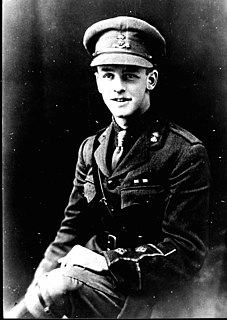 W
WJames Emmet Dalton MC was an Irish soldier and film producer. He served in the British Army in the First World War, reaching the rank of captain. However, on his return to Ireland he became one of the senior figures in the Dublin Brigade of the guerrilla Irish Republican Army which fought against British rule in Ireland.
 W
WWilliam Joseph Gabriel Doyle, MC, better known as Willie Doyle, was an Irish Roman Catholic priest who was killed in action while serving as a military chaplain to the Royal Dublin Fusiliers during the First World War.
 W
WJohn Joseph Esmonde was a physician and an Irish nationalist Member of Parliament for North Tipperary from 1910 to 1915.
 W
WSir John Lymbrick Esmonde, 14th Baronet, SC was an Irish nationalist politician who served as Member of Parliament (MP) in the Parliament of the United Kingdom and later as a Teachta Dála (TD) in Dáil Éireann.
 W
WWilliam Ballintrae Gillespie was an Irish football player who played as a striker for Sheffield United over a twenty-year period from 1913 to 1932, scoring over 137 League and Cup goals in 492 games for the South Yorkshire side. Gillespie was born in Kerrykeel, County Donegal, Ireland and began his career with Irish side Institute in 1907. After a short spell with Linfield he moved to England to play for Leeds City in 1910 before moving to Sheffield United in 1912, where he would stay until he retired from playing. Gillespie also made 25 appearances for the Ireland national team. In 1932 he took over as manager of Derry City where he remained until 1940. After leaving Derry, Gillespie moved to the south of England where he lived until his death in 1981.
 W
WFather Francis Gleeson was an Irish Roman Catholic priest who served as a British Army chaplain during Ireland's involvement in the First World War. Educated at seminaries near Dublin, Gleeson was ordained in 1910 and worked at a home for the blind before volunteering for service upon the outbreak of war. Commissioned into the Army Chaplains' Department and attached to the 2nd Battalion, Royal Munster Fusiliers he served with them at the First Battle of Ypres. During this battle Gleeson is said to have taken command of the battalion after all the officers were incapacitated by the enemy. He was highly regarded by his men for tending to the wounded under fire, visiting the frontline trenches, and bringing gifts.
 W
WGeneral Sir Hubert de la Poer Gough was a senior officer in the British Army in the First World War. A favourite of the British Commander-in-Chief, Field Marshal Sir Douglas Haig, he experienced a meteoric rise through the ranks during the war and commanded the British Fifth Army from 1916 to 1918.
 W
WMajor General Sir Charles William Gwynn, KCB, CMG, DSO, FRGS was an Irish born British Army officer, geographer, explorer and author of works on military history and theory.
 W
WStephen Lucius Gwynn was an Irish journalist, biographer, author, poet and Protestant Nationalist politician. As a member of the Irish Parliamentary Party he represented Galway city as its Member of Parliament from 1906 to 1918. He served as a British Army officer in France during World War I and was a prominent proponent of Irish involvement in the Allied war effort. He founded the Irish Centre Party in 1919, but his moderate nationalism was eclipsed by the growing popularity of Sinn Féin.
 W
WCaptain Henry Harrison was an Irish politician. He served as MP in the House of Commons of the United Kingdom of Great Britain and Ireland and as member of the Irish Parliamentary Party represented Mid Tipperary from 1890 to 1892. He later served as a Royal Irish Regiment officer with the New British Army in World War I, was an extensive writer, and proponent of improved relations between the United Kingdom and Ireland.
 W
WHubert Dunsterville Harvey-Kelly, was a British Army officer and military aviator. During the First World War, he was credited with being the first Royal Flying Corps (RFC) pilot to land in France, and of being the first RFC pilot to down an enemy aircraft. He was eventually shot down during Bloody April and died of head wounds in a German hospital.
 W
WJosephine E. Heffernan was an Irish-American nurse who served during the First World War. She was born in Dublin and immigrated to the US in 1906, where she joined the United States Army in 1913. She served as a nurse in California and Mississippi, before being stationed at the American hospital at Rimaucourt, France. After the war, Heffernan went on to see service in China, the Philippines, and Pearl Harbor.
 W
WMajor General Sir William Bernard Hickie, was an Irish-born senior British Army officer and an Irish nationalist politician.
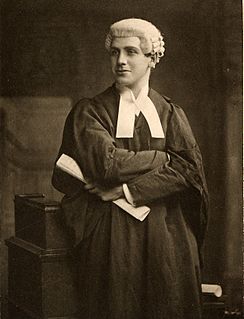 W
WThomas Michael Kettle was an Irish economist, journalist, barrister, writer, war poet, soldier and Home Rule politician. As a member of the Irish Parliamentary Party, he was Member of Parliament (MP) for East Tyrone from 1906 to 1910 at Westminster. He joined the Irish Volunteers in 1913, then on the outbreak of World War I in 1914 enlisted for service in the British Army, with which he was killed in action on the Western Front in the Autumn of 1916. He was a much admired old comrade of James Joyce, who considered him to be his best friend in Ireland, as well as the likes of Francis Sheehy-Skeffington, Oliver St. John Gogarty and Robert Wilson Lynd.
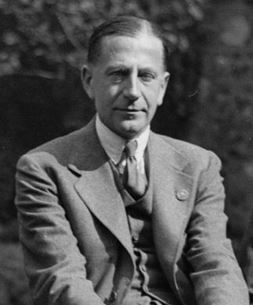 W
WFrank C. J. MacDermot was an Irish barrister, soldier and politician who served as Senator from 1937 to 1943, after being nominated by the Taoiseach. He served as a Teachta Dála (TD) for the Roscommon constituency from 1932 to 1937. He was also a founding member of Fine Gael.
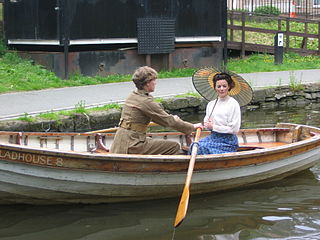 W
WPatrick MacGill was an Irish journalist, poet and novelist, known as "The Navvy Poet" because he had worked as a navvy before he began writing.
 W
WSir Bryan Thomas Mahon, was an Irish born general of the British Army, a senator of the short-lived Senate of Southern Ireland, and a member for eight years of the Irish Free State Senate until his death.
 W
WWilliam Richard English-Murphy, DSO MC known as W.R.E. Murphy (1890–1975) was an Irish soldier and policeman. He served as an officer with the British Army in the First World War and later in the National Army. In the Civil War he was second in overall command of the National Army from January to May 1923. He was first Irish Commissioner of the Dublin Metropolitan Police and the last Commissioner of the force before its merger with the Garda Síochána in 1925. Thereafter he was the Deputy Commissioner of the Gardaí until his retirement in 1955.
 W
WMajor-General Sir Oliver Stewart Wood Nugent, was a British Army officer known for his command of the 36th (Ulster) Division during the First World War and particularly at the Battle of the Somme.
 W
WMichael Terrance O'Brien, commonly referred to as Mick O'Brien, was an Irish footballer and coach whose career took him to at least 17 different clubs. A well built six footer, O'Brien was highly regarded as a centre-half. O'Brien was a dual international and played for both Ireland teams – the IFA XI and the FAI XI. In April 1927 O'Brien made his debut for the FAI XI, four days after he made his last appearance for the IFA XI. During the 1930s O'Brien managed both Queens Park Rangers and Ipswich Town.
 W
WThe Reverend Colman E. O'Flaherty, was an Irish-born American Catholic military chaplain and a recipient of the Distinguished Service Cross during World War I.
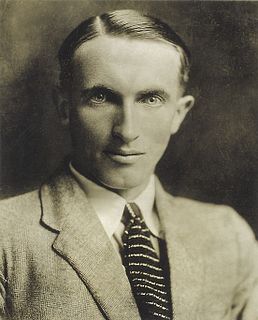 W
WLiam O'Flaherty was an Irish novelist and short-story writer, and one of the foremost socialist writers in the first part of the 20th century, writing about the common people's experience and from their perspective. Others are Seán O'Casey, Pádraic Ó Conaire, Peadar O'Donnell, Máirtín Ó Cadhain, and Seosamh Mac Grianna, all Irish-language speakers who wrote either in Irish or English.
 W
WPierce Charles de Lacy O'Mahony, known up to 1901 as Pierce Mahony, and from 1912 also as The O'Mahony of Kerry, was an Irish Protestant nationalist politician and philanthropist, who practised as a barrister from 1898 to 1900. He was remarkable in having had successively three names, two wives and three faiths, and for being honoured by the Kings of two opposing countries in World War I.
 W
WArthur Edward Bruce O'Neill, was an Irish Ulster Unionist Party politician who was the first Member of Parliament to be killed in World War I.
 W
WMajor Sir William Newenham Montague Orpen, was an Irish artist who worked mainly in London. Orpen was a fine draughtsman and a popular, commercially successful painter of portraits for the well-to-do in Edwardian society, though many of his most striking paintings are self-portraits.
 W
WJoseph O'Sullivan, along with fellow IRA volunteer Reginald Dunne, shot dead Field Marshal Sir Henry Wilson on his doorstep at 36 Eaton Place in London on 22 June 1922. He was hanged for the murder on 10 August 1922 at Wandsworth Prison. The event provided the inspiration for the film Odd Man Out.
 W
WLieutenant Colonel John Cyril Porte, was a British flying boat pioneer associated with the First World War Seaplane Experimental Station at Felixstowe.
 W
WPatrick Joseph Read, was an Irish Anarchist who served in World War I, the Irish Civil War and the Spanish Civil War. He is sometimes incorrectly called Reid or Reade.
 W
WWilliam Archer Redmond DSO was an Irish nationalist politician. He served as an MP in the House of Commons of the United Kingdom of Great Britain and Ireland as well as a Teachta Dála (TD) of Dáil Éireann. He was one of the few people to have served in both the House of Commons and in the Oireachtas.
 W
WWilliam Hoey Kearney Redmond was an Irish nationalist politician, lawyer and soldier, who was killed in action in World War I.
 W
WAir Vice-Marshal Richard Ernest Saul, was a pilot during the First World War and a senior Royal Air Force commander during the Second World War.
 W
WDaniel Desmond Sheehan, usually known as D. D. Sheehan was an Irish nationalist, politician, labour leader, journalist, barrister and author. He served as Member of Parliament (MP) in the House of Commons of the United Kingdom of Great Britain and Ireland representing Mid-Cork from 1901 to 1918, a constituency comprising the districts of Ahadallane, Ballincollig, Ballyvourney, Blarney, Coachford, Farran, Inchigeelagh, Macroom, Millstreet and Shandangan. As co-founder and President of the Irish Land and Labour Association, he was credited with considerable success in land reform, labour reforms and in rural state housing. From 1909, he was General Secretary of the Central Executive of the All-for-Ireland League, favouring a policy of National reconciliation between all creeds and classes in Ireland. During World War I he served as Irish regiments officer with the 16th (Irish) Division in France, 1915–16. He resigned his parliamentary seat in 1918 and lived in England for several years, returning to Dublin following the ending of the civil war, when he was appointed editor of the Dublin Chronicle.
 W
WColonel Arthur Howe Browne, 8th Marquess of Sligo, KBE, styled Arthur Howe Browne until 1903 and Lord Arthur Browne between 1903 and 1941, was an Irish soldier and peer.
 W
WJoseph "Colonel Joe" Henry Thompson was a highly decorated World War I veteran, recipient of the Medal of Honor, lawyer, Pennsylvania state senator, head football coach of the University of Pittsburgh Panthers, and College Football Hall of Fame inductee.